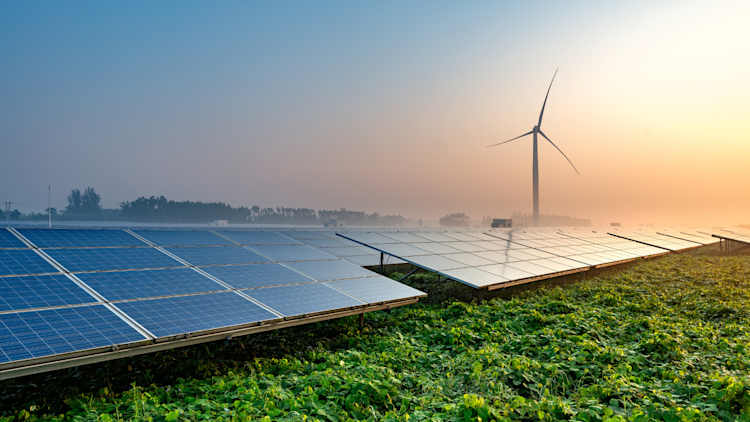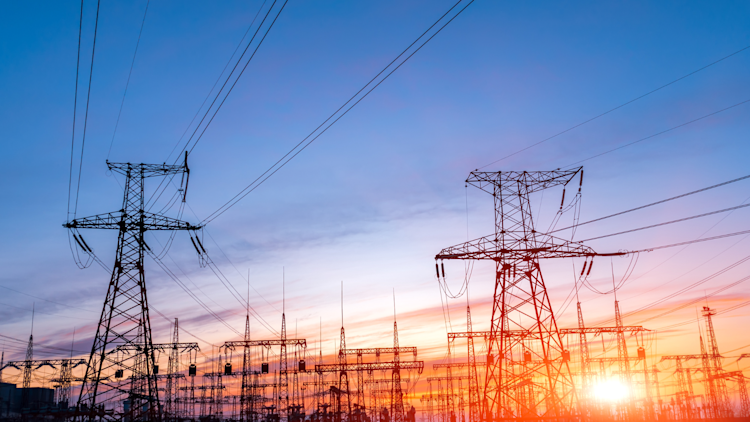Five Unique Facts About Energy Consumption
From the world’s annual energy use to what it means for ecobee to win ENERGY STAR Partner of the Year, expand your knowledge with these five facts.
by ecobee on 03/28/2023 in Better Planet
4 min read

There is power in the way we use power. How we consume energy is connected to an infinitely larger web of situations and consequences that impact the ways we live and the planet we live on. Strike the right balance in your lifestyle with the help of these five facts you may not have known about energy consumption.

1) Leaving home electronics plugged in while turned off makes up the majority of their energy consumption
Home electronics consume a small amount of energy while plugged in even if they are turned off. Over time, this state makes up for most of the appliance’s energy use.
The consumption adds up when you consider the number of home electronics plugged in while not being used: TVs, gaming consoles, desktop computers, coffee machines, and so on. One way to combat this energy drain is getting in the habit of plugging appliances into power strips and switching the strip off when not in use.
Did you know that ecobee provides free Monthly Energy Reports that give you deep insight into your HVAC system’s energy use, Total Monthly Savings, and how you compare to your neighborhood’s consumption? Your individual energy savings is based on geographic location, local weather conditions, your home’s energy-tightness, among other factors. It’s a helpful tool when you want to keep track of how much electricity you’re using for heating and cooling, and how much money you’re saving.

2) The Earth receives one year’s worth of energy from the sun in just one hour
Did you know that the Earth’s upper atmosphere receives an estimated 174 petawatts (10 to the order of 15 watts) of incoming solar radiation? Of this, 30% gets reflected to space while 70% (122 petawatts) is absorbed by our land masses, oceans, and clouds. This means we receive enough energy from the sun in one hour to power the world for an entire year.

3) Air conditioning and heating makes up nearly half of your home’s energy consumption
Utility provider Direct Energy’s breakdown of the biggest energy use categories in a typical household revealed air conditioning and heating as the top contributors to energy consumption at 46%. Rounding out the top 5 are: water heating (14%), appliances (13%), lighting (9%) and TV & media equipment (4%).

4) Your home may be an untapped source of tax credits
The US Environmental Protection Agency (EPA) features a Rebate Finder tool that helps you take advantage of tax credits that may come with your heating or cooling devices, home features like doors and windows, and more.
With these credits, you can save up to 30% of the cost or up to a maximum of $2,000 for some products. All you have to do is type in your zip or postal code and you can browse through rebates in categories such as appliances, heating and cooling, building products and water heaters. Tools like the EPA Rebate Finder help you save money while reducing energy use and protecting the environment.

5) For every $1 spent on appliances with an ENERGY STAR Label, you can save $4.50 on your bill
The ENERGY STAR label is granted to products, services, and business that meet government-backed energy efficiency specifications. It can be found on more than 75 types of products. Switching to these energy-efficient appliances can help you save $4.50 on your energy bill for every $1 spent on energy-efficient products.
This year, ecobee received the ENERGY STAR Partner of the Year winner for Sustained Excellence award, the highest honor the program gives. This distinction recognizes ecobee’s continuous commitment to designing high-efficiency products that don’t just help you save money, but also positively impact the environment.
We are honored to have won the ENERGY STAR Partner of the Year award for three years in a row and prouder still of what it stands for: our dedication to our customers and the planet.
Energy use is a responsibility we share with all humans on this planet. Knowing what constitutes responsible energy use and transforming that knowledge into productive habits brings us not only short-term benefits but also a better chance at a healthier planet and a sustainable future.
Interested in learning more about ways to save energy? Read about How ENERGY STAR Helps Families Save Energy and Support the Planet or check out our energy-saving smart thermostats.
Did you enjoy this article?
Thanks for letting us know!






